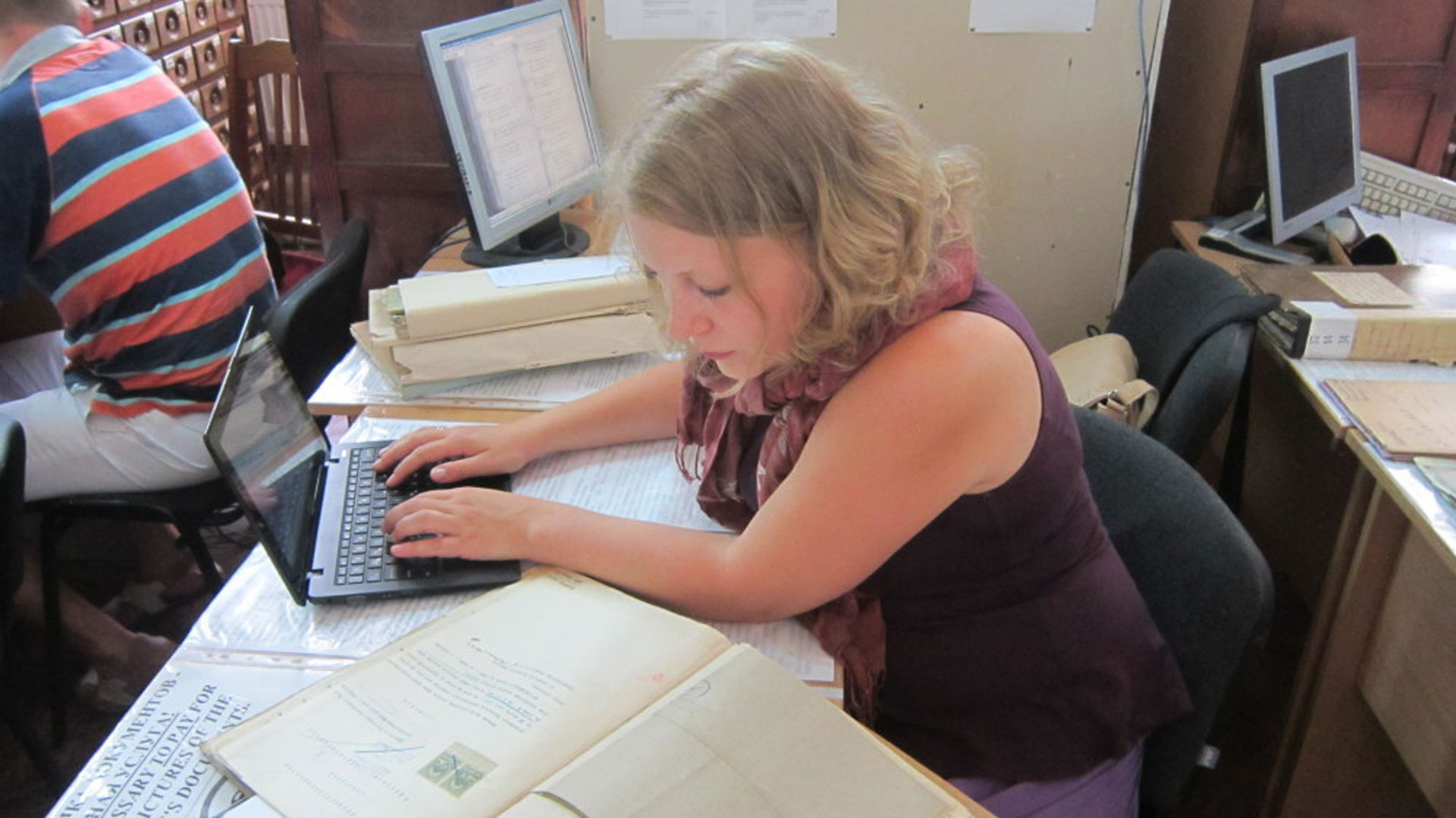
Anastasiia Strakhova
Research in the archives of St. Petersburg (Russian Federation), Kiev, and Odessa (Ukraine)
The Jeffrey A. Evans Student Grant available through the Tam Institute for Jewish Studies at Emory University enabled me to conduct research in the Russian State Historical Archive in St. Petersburg (Russian Federation), the Central State Historical Archive of Ukraine in Kiev, and the State Archives in Odessa Region (Ukraine) during summer months of 2016. Although initially I planned to visit just Kiev and Odessa, the invitation to present a paper on the International Conference for young scholars Mid-dor la-dor: Jewish Culture and Language taking place on June 30 – July 2, 2016 in St. Petersburg, determined my decision to work in the archive of the former imperial capital as well. Altogether archival work took about a month and resulted in collecting several dozens of documents that I will be using for writing a research paper, which will eventually become a part of my dissertation.
Although initially I hoped to find documents on the Am Olam society in the Russian Empire in 1881-1882, it appeared that very few papers documenting its activities found their way to the archives. To be precise, there was only one police report available in Kiev, revealing some information about underground publishing activities of the society. The scarcity of materials determined my decision to slightly shift the focus of my project and turn my archival search in another direction. Thus, I noticed that work of the Jewish Colonization Association (JCA), initially founded by Baron Maurice de Hirsch in London in 1891, had been very well documented in Russia, therefore I turned my attention to the files related to this organization.
The information that the documents revealed is quite peculiar. Thus, for example, in the documents from St. Petersburg the Police Department explicitly says that the authorities should support the Jewish Colonization Association, because it will help Russia to send Jews away. The government therefore was issuing to Jews exit passes and not passports, because, as it states in the documents, with passports Jews can travel back and forth, but with these passes they can only leave Russia and will not have a permission to return. In case Jews decided to emigrate, different kinds of fines that they were obliged to pay were cancelled too. These and some other documents of this kind allow making a conclusion that contrary to a widespread belief, the Russian authorities, at least from the 1890s, were encouraging Jewish emigration.
Documents found in the archives of Kiev and Odessa contain a similar message. But there is much more information to be revealed. According to the archival guides, there are several folders with JCA’s documentation in the State Archive of Kiev Region, but it was closed for reconstruction when I was traveling. Also, the folder with JCA’s files in Odessa was not available to researchers at that time due to its bad condition and relocation for the preservation work. To conclude, the archival research trip, which became possible due to the Jeffrey A. Evans Student Grant, yielded fruitful results that will be transformed into a research paper and later, a dissertation chapter.